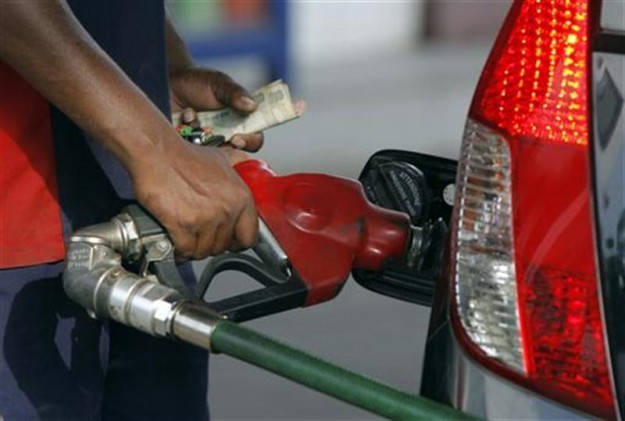Business
Fuel Hike: NNPC To Construct 35 CNG Stations …Targets 200,000 Vehicles Daily

Concerned about the hike in fuel prices in recent months, the Nigerian National Petroleum Company (NNPC) Limited, has said it would construct 35 Compressed Natural Gas (CNG) stations.
The stations, once fully operational, would service over 200,000 vehicles daily.
Spokesperson, NNPC, Garba Muhammad, who disclosed this in a Statement, said the oil giant would collaborate with NIPCO Gas Limited for the construction of the CNG stations.
Muhammad said the purpose of the CNG stations was to serve as a cheaper alternative to Premium Motor Spirit (PMS), popularly known as fuel.
Muhammad said the increase in CNG stations in Nigeria will expand access to the product and increase CNG-driven vehicles in the country.
“NNPC is happy to announce a strategic partnership with NIPCO Gas Limited to deploy compressed natural gas (CNG) stations across the country.
“This collaboration aims to expand our CNG infrastructure, improve access to CNG, and accelerate the adoption of cheaper and cleaner alternative fuel for buses, cars, and Keke NAPEP, which will significantly reduce the cost of transportation and engender sustainable national economic growth”, the statement read.
It was learnt that NIPCO currently has 14 CNG stations within the country and over 7,000 vehicles have been converted by the firm to run on CNG.
“The first phase, comprising 21 CNG stations, will support intra-city transportation and be ready by the first quarter of 2024, while the second phase, comprising 35 CNG stations, will support inter-city transformation and will be ready by late 2024.
“This will be further complemented by an additional 56 stations to be deployed by NNPC Retail across the country. Once fully operational, the stations can service over 200,000 vehicles daily”, Mohammed stated.
According to him, the initiative would leverage Nigeria’s abundant natural gas resources to bringing multiple benefits to Nigerians, including access to cheaper fuel, reduced cost of transportation, reduced carbon emissions, create new business value chains and streams of job opportunities.
Recall that the price of feul had skyrocketed to N500 per litre from N189 in June after President Bola Tinubu announced on May 29 that his administration would stop the subsidy on feul.
Business
NCDMB, Dangote Refinery Unveil JTC On Deepening Local Content
Business
Food Security: NDDC Pays Counterpart Fund For LIFE-ND Project
Business
Replace Nipa Palms With Mangroove In Ogoni, Group Urges FG, HYPREP
-
Business3 days ago
CRG Partner JR Farms To Plant 30m Coffee Seedlings
-
Foods/Drinks3 days ago
What To Know About Your Menu
-

 Niger Delta3 days ago
Niger Delta3 days agoNDLEA Intercepts 584.171kg Hard Drugs In Bayelsa … Arrests 559 Suspects
-
Rivers3 days ago
Four Internet Fraudstars Get Different Jail Terms In PH
-
Business3 days ago
Food Security: NDDC Pays Counterpart Fund For LIFE-ND Project
-
Business3 days ago
PH Women Plan Alternative Stew, Shun Tomato High Prices
-
Sports3 days ago
Nigerian Athletes Serving Doping Bans
-

 Niger Delta3 days ago
Niger Delta3 days agoEx-IYC President Lampoons Atiku’s Presidential Ambition … Declares It Negative Impact On N’Delta

